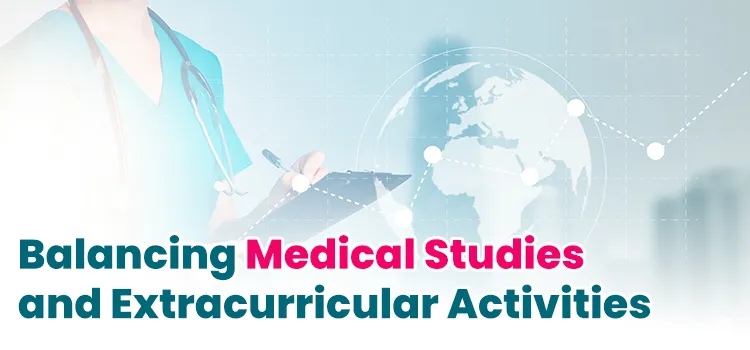
Location
1111,11th Floor Surya Kiran Building
K.G Marg,
Connaught Place, New Delhi-110001


1111,11th Floor Surya Kiran Building
K.G Marg,
Connaught Place, New Delhi-110001


In the demanding world of medical studies, students often find themselves immersed in a whirlwind of lectures, labs, and clinical rotations. But amidst the rigorous academic curriculum, there lies a need for balance- a balance between the pursuit of knowledge and the exploration of personal interests and passions. This intricate balance is essential for maintaining mental well-being, fostering personal growth, and cultivating a holistic approach to medical education. In this blog, let’s dive deeper into the art of striking this balance: managing medical studies alongside extracurricular activities.
Medical school is notorious for its demanding nature. The sheer volume of information to be absorbed, the intensity of clinical rotations, and the pressure to excel can be overwhelming. It’s easy to be consumed by the relentless pursuit of academic excellence, leaving little time for anything else. However, this tunnel vision approach can lead to burnout and lack of fulfillment.
Extracurricular activities play a vital role in shaping the holistic development of the students. While academic provides the foundation for success, participating in extracurricular activities offers numerous benefits that go beyond the classroom.
Finding harmony between medical studies and extracurricular activities is a journey that requires intentionality, discipline, and self-awareness. It’s about recognizing the value of a well-rounded education and embracing opportunities for personal and professional development beyond the confines of textbooks and lecture halls. By striking this balance, medical students can not only excel academically but also thrive personally, laying the foundation for a fulfillment and impactful career in healthcare.
Posted On: 8th May 2024